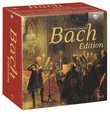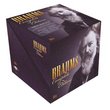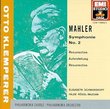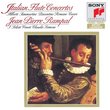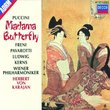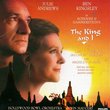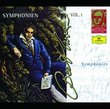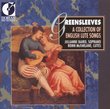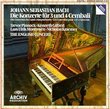| All Artists: Various, Franz Schubert Title: Schubert Edition Members Wishing: 0 Total Copies: 0 Label: Brilliant Classics Release Date: 10/28/2014 Album Type: Box set Genre: Classical Style: Number of Discs: 69 SwapaCD Credits: 69 |
Search - Various, Franz Schubert :: Schubert Edition
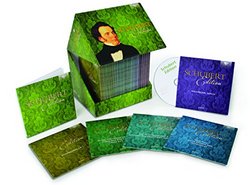 | Various, Franz Schubert Schubert Edition Genre: Classical Franz Schubert may have only lived 32 years, but there is no question that he packed a phenomenal amount into his lifetime, with around 600 of his total of nearly 1000 works composed before he was 21. It is astounding to t... more » |
Larger Image |
CD Details
Synopsis
Product Description
Franz Schubert may have only lived 32 years, but there is no question that he packed a phenomenal amount into his lifetime, with around 600 of his total of nearly 1000 works composed before he was 21. It is astounding to think, given his reputation today as one of Western arts greatest figures, that only a very small proportion of his music was either performed or published in his day. Born in 1797, he was very much aware of the shadow of Beethoven, another of the First Viennese School (with which Schubert is often equated) and a composer who immeasurably expanded the expressive range of three major genres: the symphony, piano sonata and string quartet. And yet his doubts regarding how he was to follow this German composers example proved unjustified; combining his phenomenal melodic gift with a powerful dramatic sense and command of large-scale structure, Schubert equally enhanced these three areas, bestowing on each a large body of compositions that are among todays most performed pieces of classical music. The symphony, piano sonata and string quartet, therefore, are all included in this special collection, which details the majority of the composers output through separating it into key sections. Joining the string quartets of which the late D804, D810 are D887 are undoubtedly the most inspired are a range of other chamber music treasures, including the famous String Quintet and Trout Piano Quintet, the endearing large-scale Octet for wind and strings, and various duo works such as the Arpeggione Sonata. Though the sonatas dominate his piano literature, Schubert also excelled at composing shorter works for this instrument, such as the Impromptus, and awonderful array of music for four hands is also included. Contributions to the realm of sacred choral music include six masses, the unfinished Lazarus (which Alfred Einstein believed far surpassed Wagners Tannhäuser and Lohengrin as a step along the road to music drama) and the imposing Deutsche Messe, while the inclusion of the opera Alfonso und Estrella and the incidental music to Rosamunde on the set represents the handful of works Schubert wrote for the stage. Last, but by no means least, are Schuberts secular vocal works. Containing some of his most poignant and penetrative writing, and drawing on a vast range of authors including Goethe, Schiller, Shakespeare and many of his close friends these include part-songs, then a popular genre among amateur choruses, and a huge corpus of lieder, among which are such gems as Gretchen am Spinnrade and Der Tod und das Mädchen as well as the great song cycles Die schöne Müllerin, Schwanengesang and Winterreise. Other information: Featuring numerous period-instrument and award-winning recordings. Booklet contains consummate notes on the composer and his oeuvre. Extensive liner notes and sung texts available online.

